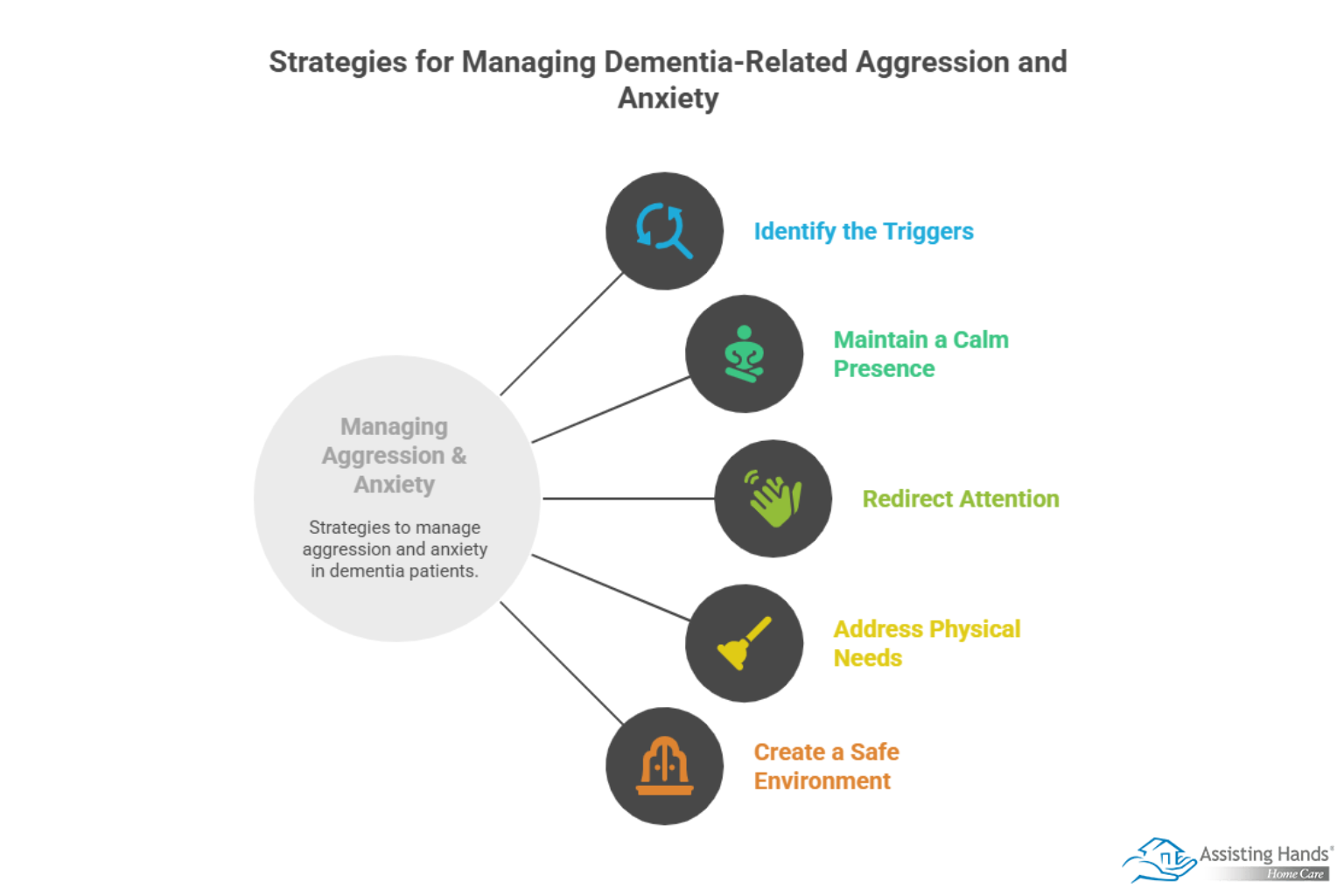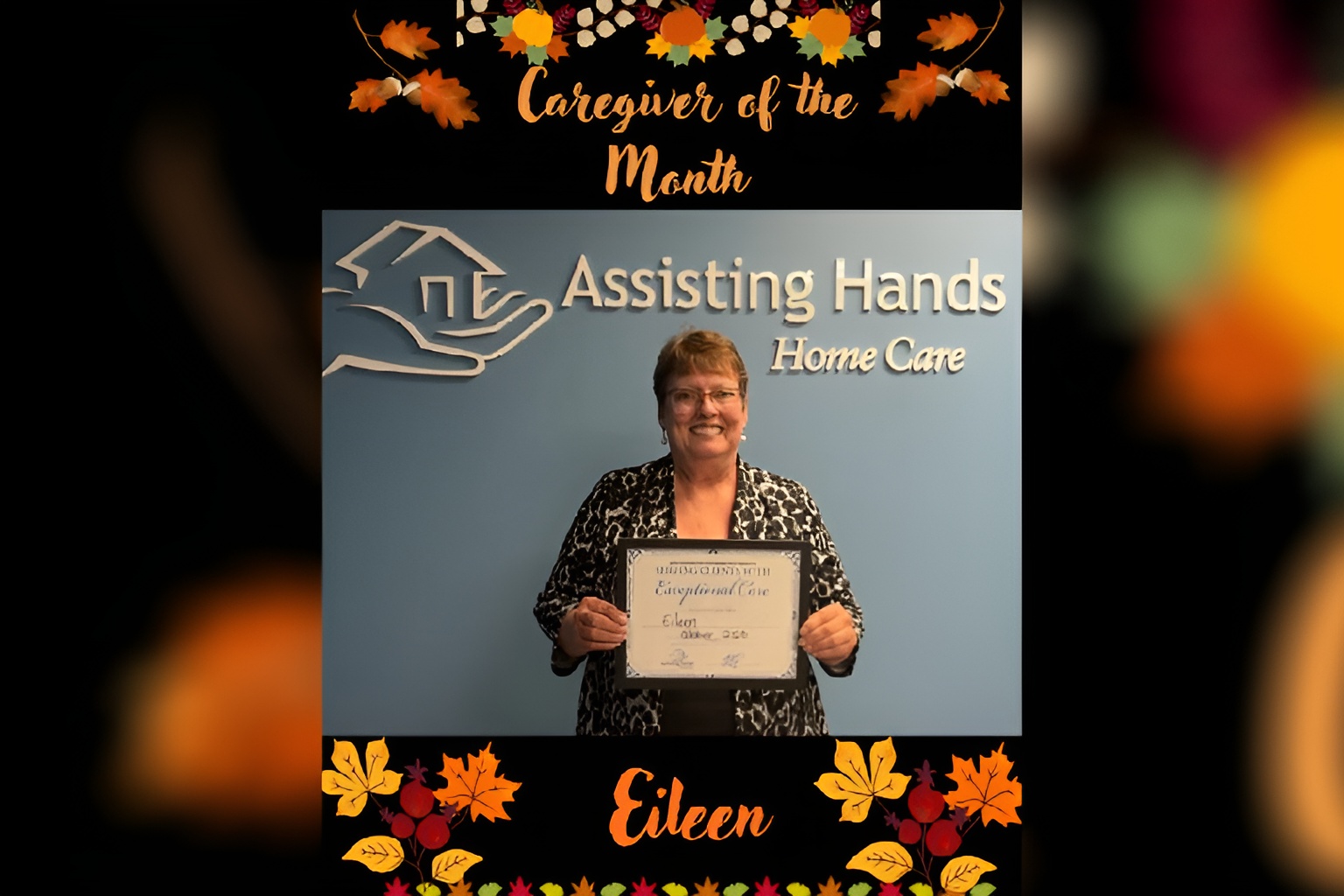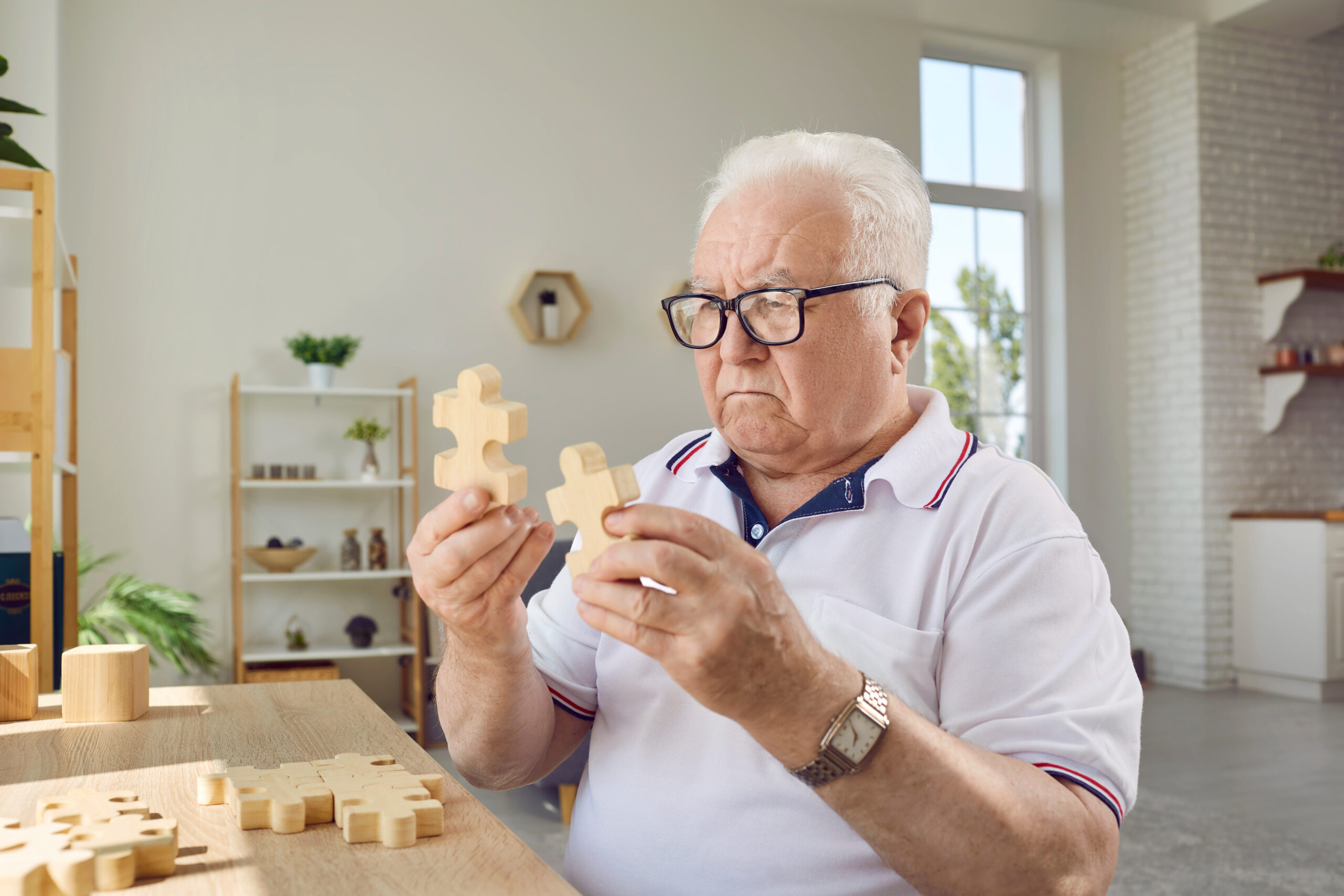
Table of Content
Dementia is a condition that affects not only memory but also emotions, behavior, and how seniors manage stress. Aggression and anxiety are common symptoms in dementia patients, and they can often be challenging for caregivers to manage. With a combination of understanding, empathy, and the right strategies, families and caregivers can reduce these episodes and create a more positive environment.
Identify the Triggers
Aggression and anxiety rarely happen without a reason. Identifying the triggers for such behaviors is the first step in managing them effectively. Triggers can include physical discomfort, fear, environmental changes, or unmet needs. Pay attention to patterns and timing by asking questions like:
- Does agitation increase during specific times of the day?
- Could physical pain or hunger be contributing to frustration?
- Is the environment too noisy, crowded, or overwhelming?
Once you identify these triggers, modifications can be made to reduce or eliminate them. For example, ensuring a calm and structured routine can go a long way toward preventing anxiety.
The cognitive challenges that accompany dementia often leave aging adults unable to manage everyday tasks, which puts their safety and health at risk. If your senior loved one has been diagnosed with a serious condition and needs help with tasks like meal prep, transportation, bathing, and grooming, reach out to Assisting Hands Home Care, a leading provider of homecare services families can trust. We also offer comprehensive care for seniors with dementia, Alzheimer’s, and Parkinson’s.

Maintain a Calm and Reassuring Presence
Your response as a caregiver plays a pivotal role in de-escalating aggression or calming an anxious episode. Stay as calm and composed as possible, even when the situation feels stressful. Seniors with dementia are highly perceptive to the emotions and energy of those around them. Yelling, arguing, or showing signs of frustration can escalate your loved one’s anxiety or aggressive behavior.
Instead, use these techniques:
- Speak slowly in a soothing tone.
- Maintain eye contact while appearing empathetic and concerned.
- Use reassuring touch (if your loved one is comfortable with it) to show care and support.
Your demeanor can send a message of safety and comfort, defusing heightened emotions.
Redirect Attention
Redirection is a simple but highly effective tool for managing both aggression and anxiety. Instead of attempting to correct your loved one’s feelings or confront his or her behavior, gently shift the focus to a new activity or subject. For example:
- If your loved one is anxious or agitated about a perceived threat, transition his or her attention to something calming like looking at a photo album.
- Offer a comforting activity like folding laundry, arranging objects, or listening to soothing music.
The key is to choose calming or engaging activities appropriate to your loved one’s level of cognitive ability and interests.
Symptoms such as agitation, confusion, anger, and frustration are common in elderly people with dementia. Seniors can face a variety of age-related challenges. Though some families choose to take on the caregiving duties, there may come a time when they need a trusted Libertyville senior care provider. Families sometimes need respite from their duties so they can focus on their other responsibilities, and some seniors need around-the-clock assistance that their families are not able to provide. Assisting Hands Home Care is here to help.
Address Physical and Emotional Needs
Physical and emotional discomfort often amplify anxiety or aggression in dementia patients. Take steps to ensure your loved one’s basic needs are met:
- Check for physical discomfort like hunger, thirst, or the need to use the restroom.
- Assess medical issues such as pain or medication side effects that could be contributing factors.
- Show emotional support by offering reassurance for feelings of insecurity or loneliness.
Sometimes, what presents as “aggressive” behavior is a senior’s way of expressing discomfort or asking for help in a way he or she can’t verbalize.
Create a Safe and Comfortable Environment
The environment plays a significant role in how dementia patients respond to their surroundings. A chaotic or overstimulating environment can trigger anxiety and aggression. Focus on creating a space that promotes comfort and reduces stress:
- Limit loud noises, bright lights, or excessive clutter.
- Introduce familiar items like photographs or personal mementos to help your loved one feel secure.
- Stick to a predictable routine to create a sense of familiarity.
Safety modifications, such as removing sharp objects or utilizing locks on certain doors, can also prevent situations where aggressive behavior becomes harmful.
Caring for seniors with dementia can be challenging for family caregivers. Luckily, there is dementia care Libertyville families can rely on. Professional dementia caregivers help seniors with dementia stay safe and comfortable at home by preventing wandering, providing cognitive stimulation, and assisting with household chores. Assisting Hands Home Care can be your trusted partner in caregiving for your loved one. Contact one of our experienced Care Specialists today to learn more about our reliable in-home care services.








